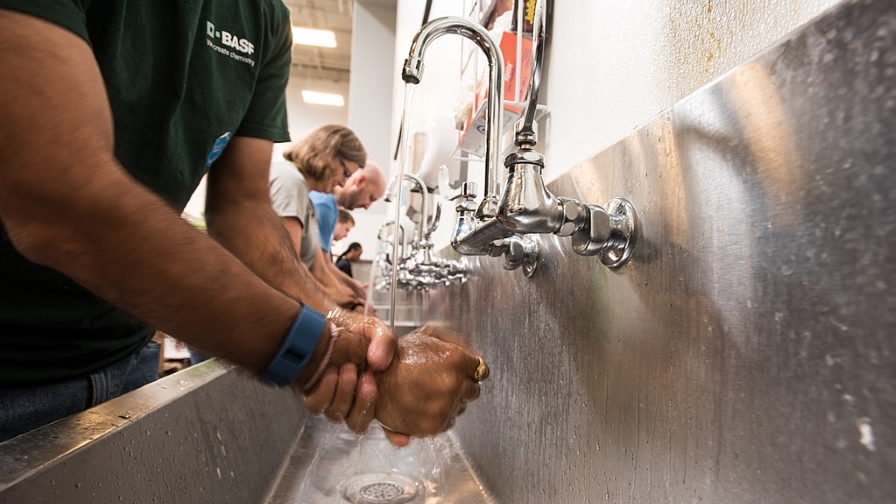7 Ways to Get Your Crews to Practice Food-Safety-Friendly Hygiene
 Farm owners and their employees have a big responsibility to ensure that the crops they produce are safe for consumers. This begins with good health and hygiene practices.
Farm owners and their employees have a big responsibility to ensure that the crops they produce are safe for consumers. This begins with good health and hygiene practices.
Here are some great recommendations for ensuring food safety:
1. Educate Employees
Farm owners should make sure that every employee is educated about the importance of hygiene and food safety. Employees should be trained in how to recognize contaminated food and properly dispose of it. Employees should also be educated on how to manage illness.
2. Establish Employee Policies
Promote health and hygiene on your farm by establishing policies for your employees. Some examples include:
- Employees must report to work wearing clean clothing
- All food and drink should be kept in a locker or break room
- Eating, drinking, or smoking should be done only in designated areas
3. Provide Appropriate Handwashing Stations and Toilets
Farm employees and visitors should have ready access to handwashing stations and clean, well-stocked toilets. It is important that employees know how important hygiene is. If your farm uses Porta-Potty facilities, you can schedule regular maintenance or cleaning as needed.
You should always use liquid soap. Make sure employees know to scrub their hands and arms, under their fingernails, and between their fingers. Handwashing should take at least 20 seconds. Provide single use paper towels for drying. This reduces the risk of bacteria growth and cross contamination.
4. Reiterate the Importance of Handwashing
As simple as it is, handwashing is one of the most important aspects of health and hygiene on a farm. Not only handwashing, but proper handwashing. There are a lot of misconceptions about handwashing, sanitation, drying, and spreading bacteria. Rutgers Cooperative Research & Extension offers a helpful fact sheet that dispels myths and provides facts about how to properly wash hands.
Farm employees who come into direct contact with produce, such as during packaging, should wash their hands in regular intervals. Good handwashing is an important element of food safety, and is not limited to after bathroom breaks.
5. Offer Signage as a Reminder about Health and Hygiene
One great way to remind farm employees about good health and hygiene practices is to display signage in important areas. Signs can include pictures of good hygiene practices, and you can display them in multiple languages as applicable. You can display signs in almost any area of the farm where employees come in contact with produce.
6. Educate Visitors about Food Safety, Health, and Hygiene
Many farms allow visitors. Sometimes visitors are children from local schools. Other times, they are consumers looking to buy fresh produce. As a farmer, you have a great opportunity to educate visitors about the importance of food safety, health, and hygiene. Educate visitors on the importance of handwashing, keeping kitchen and food prep areas clean, and keeping pets away from fresh foods.
7. Helping Prevent Foodborne Illness
Operating a farm is an incredible responsibility. Farm owners, operators, and employees all have a responsibility to ensure that they follow protect health and hygiene guidelines. In doing so, each of these individuals is helping to prevent foodborne illness, which costs thousands of lives each year.









